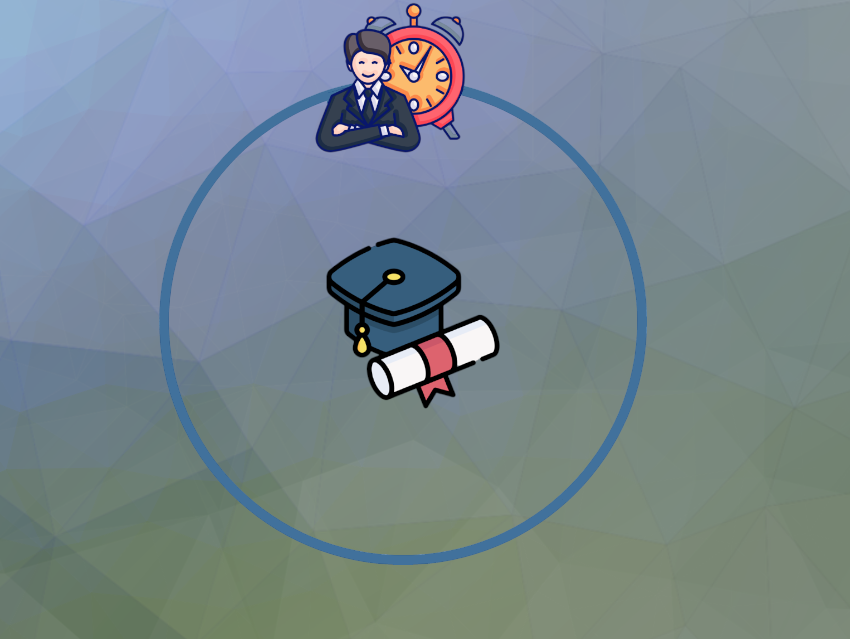Get the Most Out of Your Doctorate: Tips for Excelling Without Dying in the Attempt
Inspired by Nobel laureate Santiago Ramón y Cajal, Javier García Martínez, Professor at the University of Alicante, Spain, and Past-President of the International Union of Pure and Applied Chemistry (IUPAC), shares tips for young scientists, drawing on insights from both emerging and established chemists.
Santiago Ramón y Cajal’s book “Reglas y Consejos sobre Investigación Cientifica: Los tónicos de la voluntad” (Advice for a Young Investigator) offers timeless guidance for young researchers [1,2]. Filled with practical advice and personal stories, the insights of Cajal—who is often called the father of modern neuroscience—offer valuable guidance for Ph.D. students and early-career researchers.
In this series, Javier García Martínez distills Cajal’s key insights into actionable advice that any young scientist can apply. Drawing on his experience as a Ph.D. advisor, prolific author, and leading researcher in molecular nanotechnology, Javier adds context to Cajal’s timeless lessons. Every Tuesday and Friday, a new entry will be published, featuring practical advice and a quote from D. Santiago Ramón y Cajal’s book on the day’s topic. This series will also include insights from Vera Koester of ChemistryViews to provide additional perspective.
We invite you to read, reflect, and share your own thoughts in the comments as we explore practical strategies for making the most of your Ph.D. journey.
💡Tip 1: Be Patient and Persistent in Your Scientific Work
Scientific research is full of challenges, setbacks, and unexpected results. It is rarely a straight path, and patience is crucial. Accepting that failures are part of the process helps build resilience. When faced with repeated failures in the lab, remind yourself that persistence often leads to breakthroughs. Setbacks do not mean a lack of progress—they provide valuable learning opportunities.
Here are some practical ways to cultivate patience and persistence during your Ph.D.:
- Reframe failure as a learning tool: Keep a research journal where you document experiments, what went wrong, and lessons learned. Over time, this will help you see how far you have come.
- Break down large challenges into smaller tasks: If a project seems overwhelming, divide it into manageable steps and focus on incremental progress rather than immediate success.
- Seek feedback early and often: If an experiment or analysis is not working, discuss it with colleagues, advisors, or collaborators. Fresh perspectives can offer solutions you might not have considered.
- Develop a troubleshooting mindset: Instead of getting frustrated when something does not work, approach it systematically—identify variables, adjust parameters, and test hypotheses methodically.
- Create a support network: Surround yourself with fellow PhD students, postdocs, and mentors who understand the struggles of research. Talking to others in the same situation can provide motivation and reassurance.
- Celebrate small wins: Every successful reaction, data set, or written paragraph is progress. Acknowledge these achievements to stay motivated.
- Practice self-care: Burnout can derail persistence. Prioritize breaks, exercise, and hobbies to maintain a healthy mindset and keep long-term motivation high.
“If a solution fails to appear … and yet we feel success is just around the corner, try resting for a while. … Like the early morning frost, this intellectual refreshment withers the parasitic and nasty vegetation that smothers the good seed. Bursting forth at last is the flower of truth.”
―Santiago Ramón y Cajal, Advice for a Young Investigator
A helpful mindset is to recognize that challenges are temporary. Many researchers experience moments where nothing seems to work, but perseverance leads to discovery. We used to say in the lab: “The sum of luck is constant for everyone.” So things are going wrong now, success is bound to come eventually. That thought always helped me!
―Vera Koester
➜ Tip 2
References
[1] Santiago Ramón y Cajal, Reglas y Consejos sobre Investigación Cientifica: Los tónicos de la voluntad, Editorial Médica Panamericana, Madrid, Spain, 2011. ISBN-13: 978-8467037753
[2] Javier García-Martínez, How To Make the Most of your PhD?, Bunsen-Magazin 01/2025.
Also of Interest

Interview: Can I Become an Entrepreneur and If So, How?
An interview with the president of IUPAC, professor, entrepreneur, and author Javier García-Martínez

Collection: Student Career Resources
A growing compilation of resources that help you in your career


![9 Tips for a Successful PhD [Tip 8]](https://www.chemistryviews.org/wp-content/uploads/2025/04/202503_9-Tips-for-a-Successful-PhD_Tip8-125x94.png)
![9 Tips for a Successful PhD [Tip 7]](https://www.chemistryviews.org/wp-content/uploads/2025/04/202503_9-Tips-for-a-Successful-PhD_Tip7-125x94.png)
![9 Tips for a Successful PhD [Tip 6]](https://www.chemistryviews.org/wp-content/uploads/2025/04/202503_9-Tips-for-a-Successful-PhD_Tip6-125x94.png)
